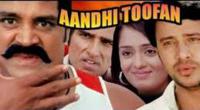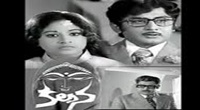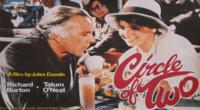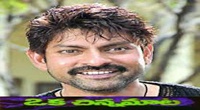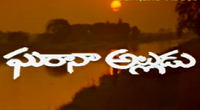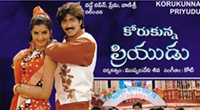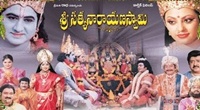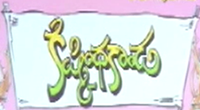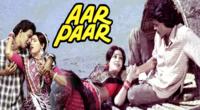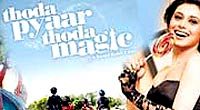Children of Men is a 2006 British-American dystopian thriller film directed and co-written by Alfonso Cuarón. The screenplay, based on P. D. James' 1992 novel The Children of Men, was credited to five writers, with Clive Owen making uncredited contributions. The film takes place in 2027, where two decades of human infertility have left society on the brink of collapse. Illegal immigrants seek sanctuary in the United Kingdom, where the last functioning government imposes oppressive immigration laws on refugees. Owen plays civil servant Theo Faron, who must help a refugee (Clare-Hope Ashitey) escape the chaos. Children of Men also stars Julianne Moore, Michael Caine, Chiwetel Ejiofor, Pam Ferris and Charlie Hunnam.
| Children of Men | |
|---|---|
Theatrical release poster | |
| Directed by | Alfonso Cuarón |
| Produced by |
|
| Screenplay by |
|
| Based on | The Children of Men by P. D. James |
| Starring |
|
| Music by | John Tavener |
| Cinematography | Emmanuel Lubezki |
| Edited by |
|
Production companies |
|
| Distributed by | Universal Studios |
Release date |
|
Running time | 109 minutes |
| Country |
|
| Language | English |
| Budget | $76 million |
| Box office | $70 million |
The film was released on 22 September 2006 in the UK and on 25 December in the U.S. Critics noted the relationship between the U.S. Christmas opening and the film's themes of hope, redemption, and faith. Despite the limited release and low earnings at the box office compared to its budget, Children of Men received critical acclaim and was recognised for its achievements in screenwriting, cinematography, art direction, and innovative single-shot action sequences. It was nominated for three Academy Awards: Best Adapted Screenplay, Best Cinematography and Best Film Editing. It was also nominated for three BAFTA Awards, winning Best Cinematography and Best Production Design, and for three Saturn Awards, winning Best Science Fiction Film.
Screenplay
In 2027, after 18 years of global human infertility and depression, the world is on the brink as humanity faces extinction. The United Kingdom, one of the very few stable nations with a functioning government, is deluged by asylum seekers fleeing the radiation and antibiotic-resistant plagues which have rendered the rest of the world uninhabitable. In response, the UK has become a police state as the British Army rounds up and exterminates immigrants. Theo Faron, a former activist turned cynical bureaucrat, is kidnapped by the "Fishes", a militant immigrants' rights group. They are led by Theo's estranged wife, Julian Taylor, from whom he separated after their son Dylan's death during a 2008 flu pandemic.
Julian offers Theo money to acquire transit papers for a young refugee named Kee. Theo later obtains the papers from his cousin Nigel, a government minister who runs a state-sponsored collection of salvaged art from around the world. Since the transit papers require that the bearer be accompanied, Theo agrees to escort Kee in exchange for a large sum. Luke, a Fishes member, drives Theo, Kee, and former midwife Miriam towards Canterbury. While en route, they are ambushed by an armed gang, and Julian is killed. When the group is stopped by the police, Luke kills the officer and then the group hides Julian's body in the forest before heading to a Fishes safe house.
Kee reveals to Theo that she is pregnant and that Julian had told her to trust only Theo. Julian had intended to hand Kee to the "Human Project," a supposed scientific group in the Azores, dedicated to curing infertility. However, Luke persuades Kee to stay and is voted as the new leader of the Fishes. Later that night, Theo eavesdrops on a discussion and learns that Julian's death was orchestrated by the Fishes so Luke could become leader; they intend to kill Theo and use the baby as a political tool to support the coming revolution. Theo wakes Kee and Miriam, and they steal a car, escaping to the secluded hideaway of Theo's ageing friend Jasper Palmer, a former political cartoonist turned pot dealer.
The group makes plans to board the Human Project ship, the Tomorrow, which will arrive offshore from a refugee camp at Bexhill-on-Sea. Jasper proposes getting Syd, a camp guard to whom he frequently sells drugs, to smuggle them into Bexhill, masquerading as refugees. When the Fishes discover Jasper's house, the group flees while Jasper stays behind to stall the Fishes; Luke shoots and kills Jasper as Theo watches from the woods. The group meets Syd at an abandoned school, and he helps them board a bus to Bexhill. When Kee experiences contractions while at a checkpoint, Miriam distracts a suspicious guard by feigning mania and is taken away.
Inside the camp, Theo and Kee meet a Romanian woman, Marichka, who provides a room where Kee gives birth to a baby girl. The next day, Syd informs Theo and Kee that war has broken out between the British Army and the refugees—led by the Fishes. Having learned that they have a bounty on their heads, Syd attempts to capture them, but Theo kills him with a car battery and they escape. Amidst the fighting, the Fishes capture Kee and the baby. Theo tracks them to an apartment under heavy fire; he confronts Luke, who is then killed in an explosion, and escorts Kee and the baby out. Awed by the baby, the combatants temporarily stop fighting and allow the trio to leave. Marichka leads them to a hidden boat, but chooses to stay behind as they depart.
As military aircraft bomb Bexhill from a distance, Theo reveals that he had been shot by Luke. He tells Kee how to wind/burp her baby to soothe her crying, and Kee tells Theo she will name her Dylan—after Theo and Julian's lost son. Theo loses consciousness as the Tomorrow approaches through the fog.
- Clive Owen as Theo Faron, a former activist who was devastated when his child died during a flu pandemic. Theo is the "archetypal everyman" who reluctantly becomes a saviour. Cast in April 2005, Owen spent several weeks collaborating with Cuarón and Sexton on his role. Impressed by Owen's creative insights, Cuarón and Sexton brought him on board as a writer. "Clive was a big help," Cuarón told Variety. "I would send a group of scenes to him, and then I would hear his feedback and instincts."
- Julianne Moore as Julian Taylor. For Julian, Cuarón wanted an actor who had the "credibility of leadership, intelligence, independence". Moore was cast in June 2005, initially to play the first woman to become pregnant in 20 years. "She is just so much fun to work with," Cuarón told Cinematical. "She is just pulling the rug out from under your feet all the time. You don't know where to stand, because she is going to make fun of you."
- Clare-Hope Ashitey as Kee, an illegal immigrant and the first pregnant woman in eighteen years. She did not appear in the book, and was written into the film based on Cuarón's interest in the recent single-origin hypothesis of human origins and the status of dispossessed people: "The fact that this child will be the child of an African woman has to do with the fact that humanity started in Africa. We're putting the future of humanity in the hands of the dispossessed and creating a new humanity to spring out of that."
- Michael Caine as Jasper Palmer, Theo's dealer and friend. Caine based Jasper on his experiences with friend John Lennon – the first time he had portrayed a character who would pass wind or smoke cannabis. Cuarón explains, "Once he had the clothes and so on and stepped in front of the mirror to look at himself, his body language started changing. Michael loved it. He believed he was this guy". Michael Phillips of the Chicago Tribune notices an apparent homage to Schwartz in Orson Welles' film noir, Touch of Evil (1958). Jasper calls Theo "amigo"—just as Schwartz referred to Ramon Miguel Vargas. Jasper's cartoons, seen in his house, were provided by Steve Bell.
- Chiwetel Ejiofor as Luke
- Charlie Hunnam as Patric
- Pam Ferris as Miriam
- Peter Mullan as Syd
- Danny Huston as Nigel, Theo's cousin and a high-ranking government official. Nigel runs a Ministry of Arts programme "Ark of the Arts", which "rescues" works of art such as Michelangelo's David (albeit with a broken leg), Pablo Picasso's Guernica, and Banksy's British Cops Kissing. He mentions that he tried to save Michelangelo's Pietà, but a mob destroyed it before he could.
- Oana Pellea as Marichka
- Paul Sharma as Ian
- Jacek Koman as Tomasz
Hope and faith
Children of Men explores the themes of hope and faith in the face of overwhelming futility and despair. The film's source, P. D. James' novel The Children of Men (1992), describes what happens when society is unable to reproduce, using male infertility to explain this problem. In the novel, it is made clear that hope depends on future generations. James writes, "It was reasonable to struggle, to suffer, perhaps even to die, for a more just, a more compassionate society, but not in a world with no future where, all too soon, the very words 'justice,' 'compassion,' 'society,’ 'struggle,' 'evil,' would be unheard echoes on an empty air."
The film switches the infertility from male to female but never explains its cause: environmental destruction and divine punishment are considered. This unanswered question (and others in the film) have been attributed to Cuarón's dislike for expository film: "There's a kind of cinema I detest, which is a cinema that is about exposition and explanations ... It's become now what I call a medium for lazy readers ... Cinema is a hostage of narrative. And I'm very good at narrative as a hostage of cinema." Cuarón's disdain for back-story and exposition led him to use the concept of female infertility as a "metaphor for the fading sense of hope". The "almost mythical" Human Project is turned into a "metaphor for the possibility of the evolution of the human spirit, the evolution of human understanding." Without dictating how the audience should feel by the end of the film, Cuarón encourages viewers to come to their own conclusions about the sense of hope depicted in the final scenes: "We wanted the end to be a glimpse of a possibility of hope, for the audience to invest their own sense of hope into that ending. So if you're a hopeful person you'll see a lot of hope, and if you're a bleak person you'll see a complete hopelessness at the end."
Religion
Like Virgil's Aeneid, Dante's Divine Comedy, and Chaucer's Canterbury Tales, the crux of the journey in Children of Men lies in what is uncovered along the path rather than the terminus itself. Theo's heroic journey to the south coast mirrors his personal quest for "self-awareness", a journey that takes him from "despair to hope".
According to Cuarón, the title of P. D. James' book (The Children of Men) is a Catholic allegory derived from a passage of scripture in the Bible. (Psalm 90 (89):3 of the KJV: "Thou turnest man to destruction; and sayest, Return, ye children of men.") James refers to her story as a "Christian fable" while Cuarón describes it as "almost like a look at Christianity": "I didn't want to shy away from the spiritual archetypes," Cuarón told Filmmaker Magazine. "But I wasn't interested in dealing with dogma."
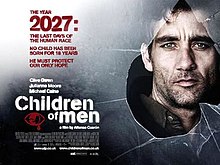 Story of movie Children Of Men :
Story of movie Children Of Men : 
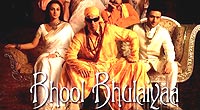

.jpg)
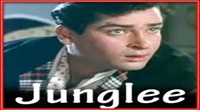
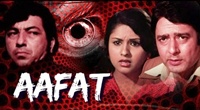
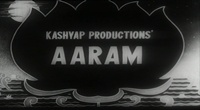
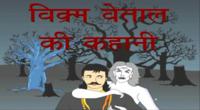
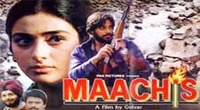
.jpg)
